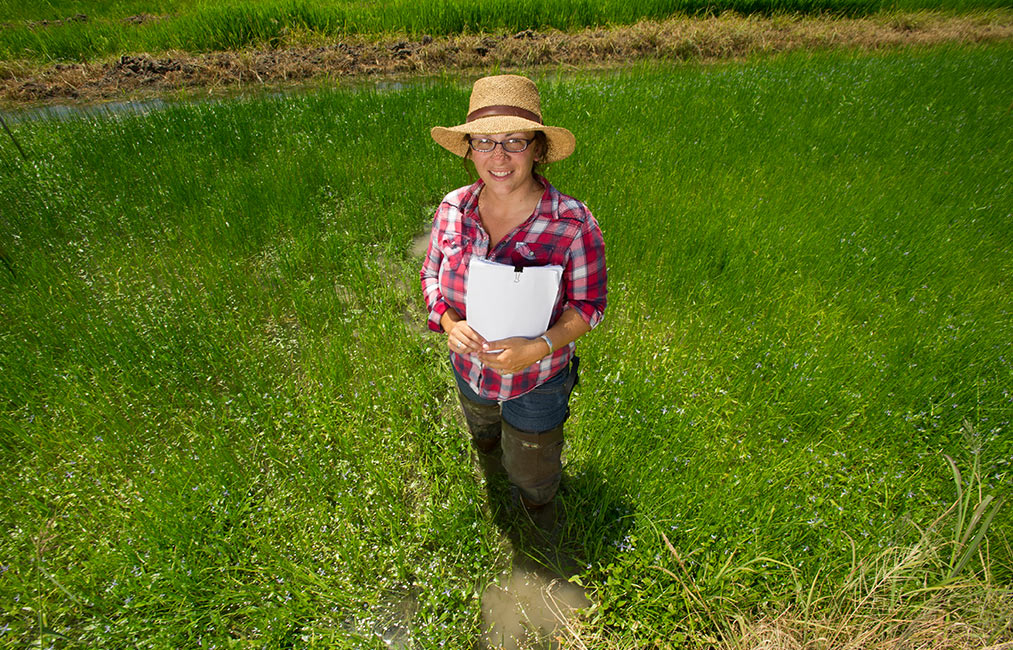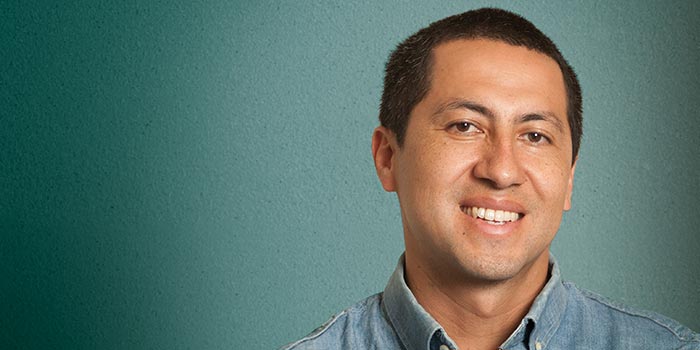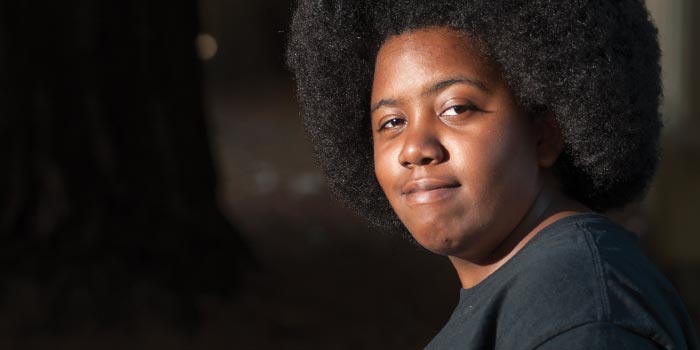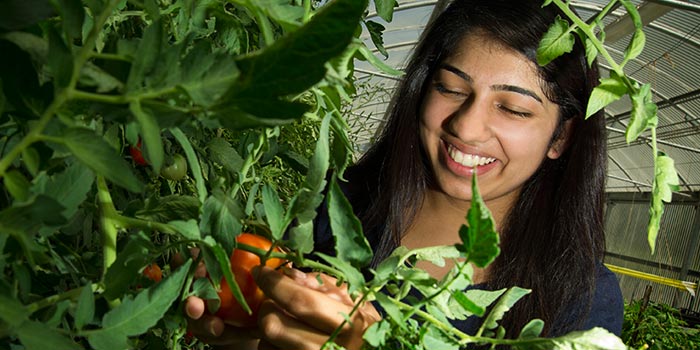Handling the rice field weeds

Whitney Brim-DeForest
Ph.D. candidate 2015: Horticulture and Agronomy
M.S. ’14: International Agricultural Development
Location: Biggs
Impact: Helping California rice farmers fight weeds in ways that are more ecologically friendly and save money
What started as an observation that farmers spend way too much time hand-weeding in rice fields has become a life quest for Whitney Brim-DeForest.
Today you can find the horticulture and agronomy doctoral student wading through flooded rice fields in Northern California looking for uninvited invaders, including late watergrass, one of the worst weeds that rice farmers combat.
“Weeds are tricky,” Brim-DeForest says. “And they are very competitive.” Key among the problems farmers face is herbicide resistance.
She works in cooperation with rice farmers such as Thad Rodgers of Glenn County to develop multiple strategies to thwart these grassy competitors. California rice growers support the research on weeds through the California Rice Research Board and the Cooperative Rice Experiment Station in Biggs, where Brim-DeForest does her research.
Deep into her dissertation, Brim-DeForest can imagine reaching her career goal in the next few years. She wants to work as an agricultural extension specialist, helping California rice farmers develop new weed-management methods that are more ecologically friendly and economical. She credits her success to the “amazing UC Davis scientists” who have given her a vigorous scientific education — her advisers Albert Fischer and Bruce Linquist, among others.
She also credits her fellow students who mentored her, first in the International Agricultural Development Program, and now in the Horticulture and Agronomy Graduate Group.
“When I was struggling with research questions, it was the other graduate students and postdocs as a supportive community who helped me through,” she says.







